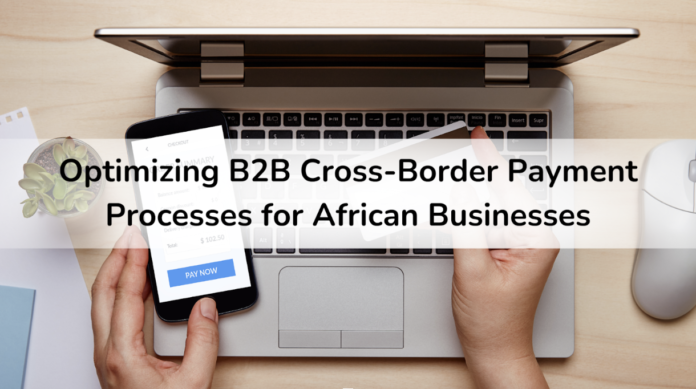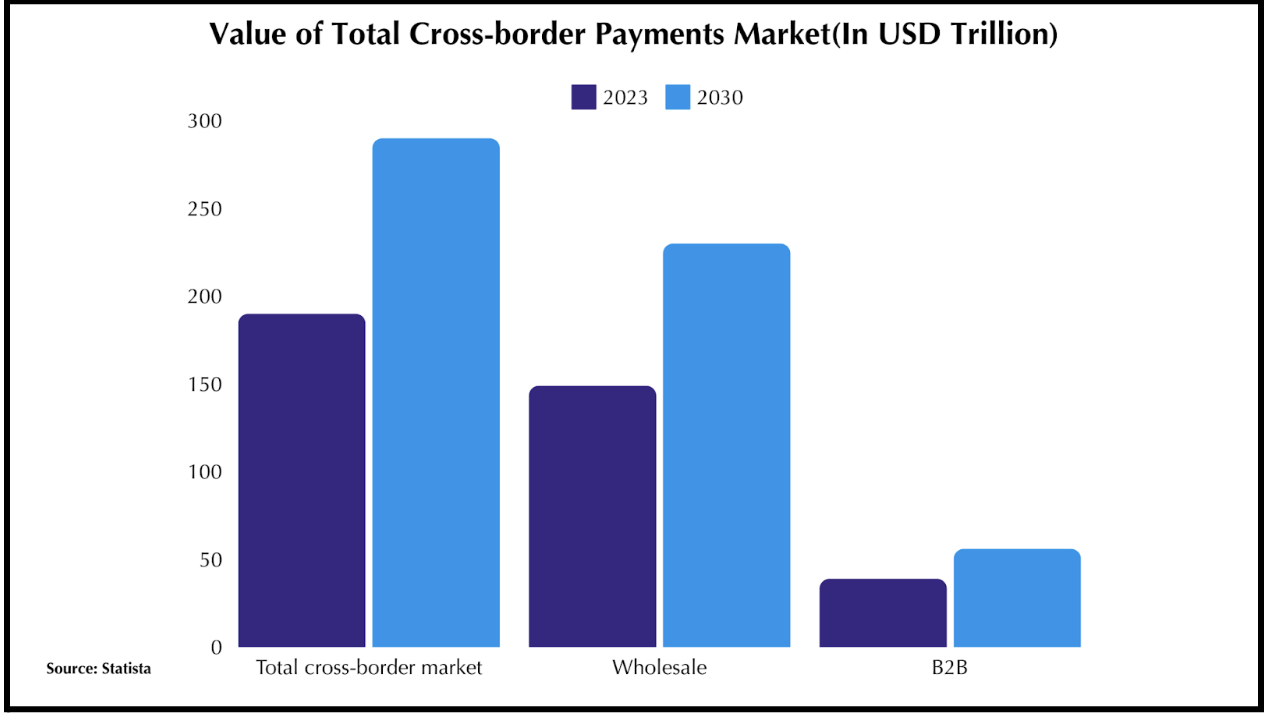For African businesses engaged in cross-border trade, optimizing payment processes is crucial for streamlining operations, reducing costs, and maintaining a competitive edge. However, navigating the complexities of cross-border payments can be a daunting task, fraught with challenges such as high transaction fees, lengthy processing times, and regulatory hurdles. This article addresses the concerns of African businesses with practical strategies and insights to optimize their cross-border payment processes.
The Challenges of Cross-Border Payments for African Businesses
African businesses face several obstacles when it comes to cross-border payments, including:
High Transaction Costs: Traditional cross-border payment methods, such as wire transfers and correspondent banking, often involve multiple intermediaries, each charging their own fees. These fees can add up quickly, resulting in significant costs for businesses.
Lengthy Processing Times: Cross-border payments can take several days or even weeks to process, leading to delays in cash flow and potential disruptions to business operations.
Regulatory Compliance: Navigating the complex regulatory requirements across different jurisdictions can be daunting, especially for businesses operating in multiple countries.
Limited Access to Financial Services: In many parts of Africa, access to formal financial services remains limited, making it difficult for businesses to participate in cross-border trade effectively.
Strategies for Optimizing Cross-Border Payment Processes
To optimize cross-border payment processes, African businesses can consider the following strategies:
Leveraging Digital Payment Solutions
Mobile money and digital wallets offer a convenient and cost-effective way to facilitate cross-border payments, particularly in regions with limited access to traditional banking services. These solutions allow businesses to securely send and receive payments, often with lower transaction fees compared to traditional methods.
Furthermore, blockchain technology and cryptocurrencies have the potential to revolutionize cross-border payments, offering faster, more secure, and cheaper transactions while reducing the need for intermediaries.
These transactions are facilitated by crypto and FX OTC (over-the-counter) markets, providing liquidity and supporting large-volume trades. Partnering with a reliable crypto OTC partner in Africa can ensure quick execution of high-volume orders.
| Payment Solution | Advantages | Disadvantages |
| Mobile Money and Digital Wallets | Convenient for regions with limited banking access and lower transaction fees, widely adopted in Africa | Limited to certain regions or providers, potential regulatory challenges |
| Blockchain and Cryptocurrencies | Fast and secure transactions, low fees, decentralized and transparent | Volatility in cryptocurrency prices, regulatory uncertainties, limited adoption in some regions |
| Online Payment Gateways | User-friendly interface, secure payment processing, global reach | Potential integration challenges and transaction fees may vary. |
Partnering with Fintech Companies
Fintech companies specializing in cross-border payment solutions can offer African businesses access to competitive exchange rates, low fees, and faster transaction times. These companies leverage innovative technologies and strategic partnerships to optimize cross-border payment processes, reducing the associated costs and complexities.
Moreover, Banking as a Service (BaaS) providers can assist businesses in integrating financial services, such as cross-border payment capabilities, into their operations. This enables them to provide seamless payment experiences to customers and suppliers. Establishing a relationship with a reliable crypto OTC partner in Africa can further enhance efficiency in managing high-volume trades.
Optimizing Internal Processes
Automating payment processes through the use of software and APIs can help reduce manual errors, improve efficiency, and enhance visibility into payment flows. By integrating automated systems, businesses can streamline cross-border payment workflows, ensuring consistent adherence to policies and procedures across multiple locations and jurisdictions.
Implementing a centralized payment management system further enhances process optimization by consolidating payment data and enabling centralized monitoring and control. Leveraging data analytics tools can provide valuable insights into cross-border payment patterns, allowing businesses to identify areas for improvement and make data-driven decisions to continuously optimize their processes.
Building Strategic Partnerships
Forging strategic partnerships with local and international financial institutions, payment service providers, and industry associations can be a valuable strategy for African businesses seeking to optimize their cross-border payment processes.
Such collaborations can provide access to specialized knowledge, technology, and networks, enabling businesses to navigate the complexities of cross-border payments more effectively. By leveraging the expertise and resources of partners, businesses can gain insights into best practices, stay updated on regulatory changes, and benefit from economies of scale.
Additionally, partnerships with logistics and supply chain companies can facilitate seamless integration of payment processes with physical goods movement, further streamlining cross-border operations.
Cross-Border Payment Literacy
As businesses deal with the complexities of cross-border payments, fostering payment literacy within the organization becomes paramount. Providing comprehensive training programs and educational resources can equip employees with the knowledge and skills necessary to effectively manage cross-border payment processes.
This involves understanding regulatory frameworks, risk mitigation strategies, and the intricacies of various payment methods and technologies. Cultivating a workforce knowledgeable in cross-border payment dynamics helps businesses enhance decision-making capabilities, minimize errors, and respond swiftly to emerging trends or challenges.
Moreover, promoting payment literacy among stakeholders, such as customers and suppliers, can facilitate smoother transactions and strengthen collaborative relationships.
The Importance of Optimizing Cross-Border Payment Processes
Optimizing cross-border payment processes is crucial for African businesses for several reasons:
Cost Savings
By streamlining payment processes and reducing transaction fees, businesses can significantly improve their bottom line and allocate resources more effectively.
Improved Cash Flow
Faster and more efficient cross-border payments can enhance cash flow management, enabling businesses to meet their financial obligations more effectively and take advantage of growth opportunities.
Competitive Advantage
In an increasingly globalized marketplace, businesses with optimized cross-border payment processes can gain a competitive edge by offering more attractive terms and faster delivery times to their customers and suppliers.
Regulatory Compliance
Ensuring compliance with relevant regulations helps businesses avoid costly fines and legal issues, while also building trust and credibility with stakeholders.
Regulatory Compliance and Risk Management
Businesses should stay informed about the latest regulatory developments in the jurisdictions where they operate and ensure their cross-border payment processes adhere to all relevant laws and regulations. Adopting robust risk management strategies, such as Know Your Customer (KYC) and Anti-Money Laundering (AML) procedures, can help businesses mitigate risks associated with cross-border payments and maintain compliance with regulatory requirements.
Collaborating with legal and compliance experts helps businesses navigate the complexities of cross-border payment regulations and ensure they have necessary safeguards in place.
Conclusion
Optimizing cross-border payment processes is crucial for African businesses aiming to thrive in the global marketplace. By leveraging digital payment solutions, partnering with fintech companies, optimizing internal processes, and ensuring regulatory compliance, businesses can overcome the challenges associated with cross-border payments and gain a competitive edge. Embracing innovation, fostering collaboration, and prioritizing efficiency will be key to unlocking the full potential of cross-border trade for African businesses.
Frequently Asked Questions
How can digital payment solutions help optimize cross-border payments?
Digital solutions like mobile money, cryptocurrencies, and online payment gateways can offer faster, more secure, and cost-effective cross-border transactions.
How can businesses streamline their internal processes for cross-border payments?
Automating payment processes, implementing centralized payment management systems, and leveraging data analytics can help businesses improve efficiency and gain valuable insights.
Why is regulatory compliance important for cross-border payments?
Ensuring compliance with relevant regulations helps businesses avoid costly fines, legal issues, and reputational damage, while also building trust and credibility with stakeholders.
Key Takeaways
- Optimizing cross-border payment processes is crucial for African businesses to remain competitive in the global marketplace.
- Leveraging digital payment solutions, partnering with fintech companies, and streamlining internal processes can significantly improve cross-border payment efficiency.
- Regulatory compliance and robust risk management strategies are essential for mitigating risks and maintaining credibility.
- Adopting a data-driven approach and leveraging analytics can provide valuable insights for continuously improving cross-border payment processes.
- Collaboration with legal and compliance experts, as well as leveraging industry best practices, can help businesses navigate the complexities of cross-border payments.
Help keep news FREE for our readers
Supporting your local community newspaper/online news outlet is crucial now more than ever. If you believe in independent journalism, then consider making a valuable contribution by making a one-time or monthly donation. We operate in rural areas where providing unbiased news can be challenging. Read More About Supporting The West Wales Chronicle


























